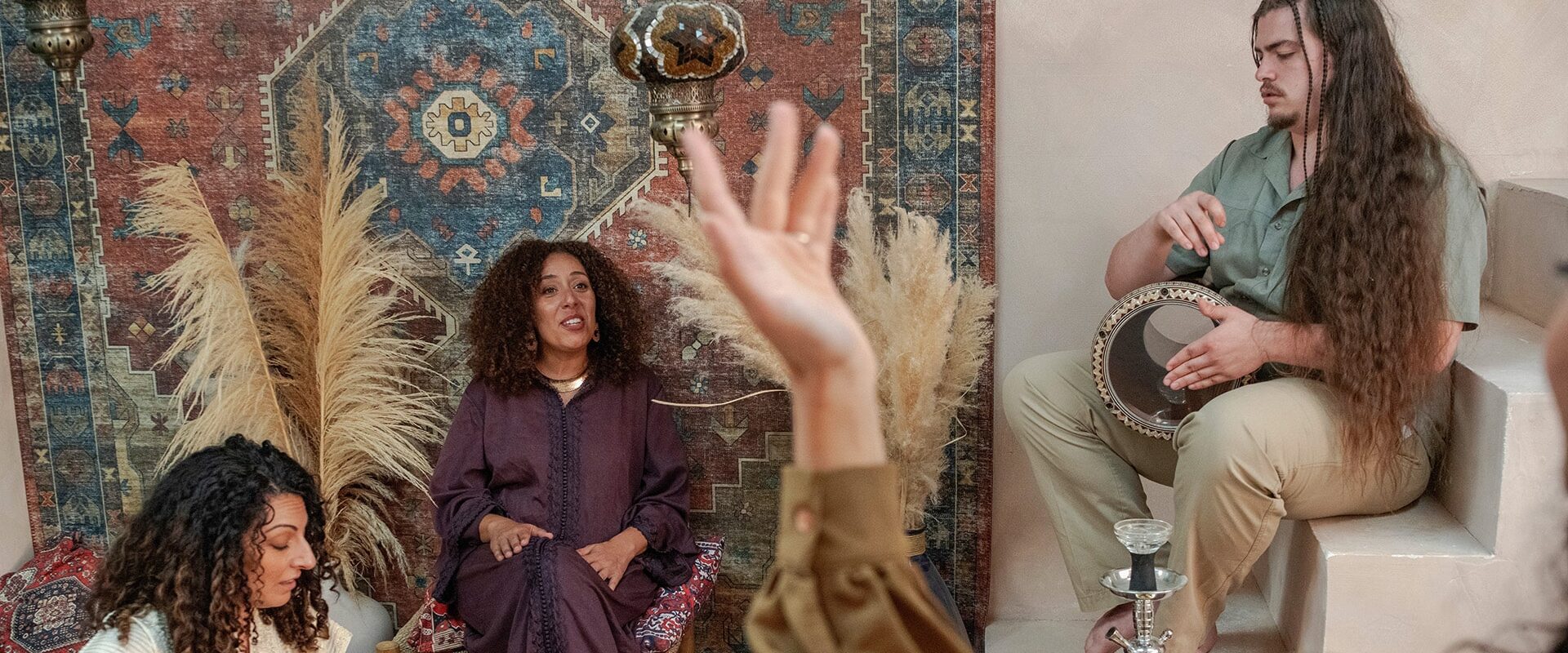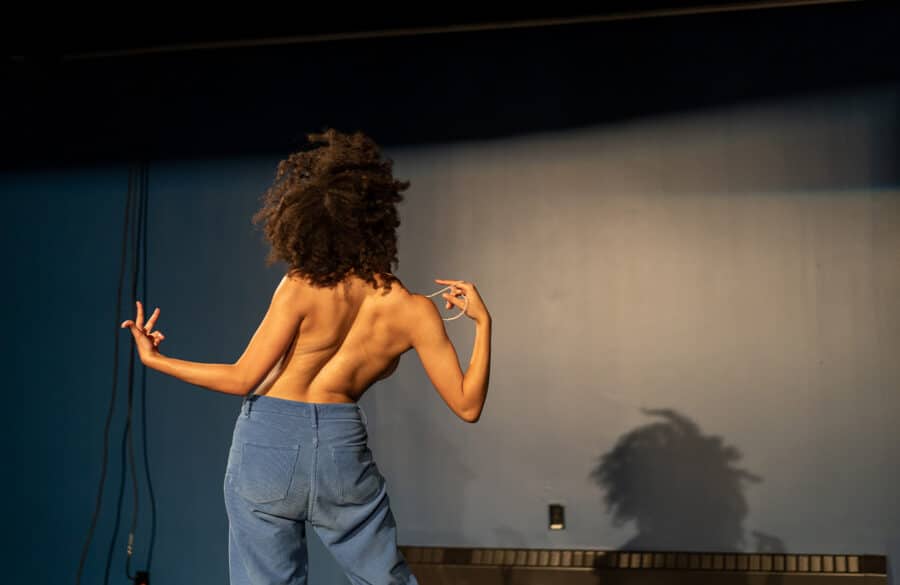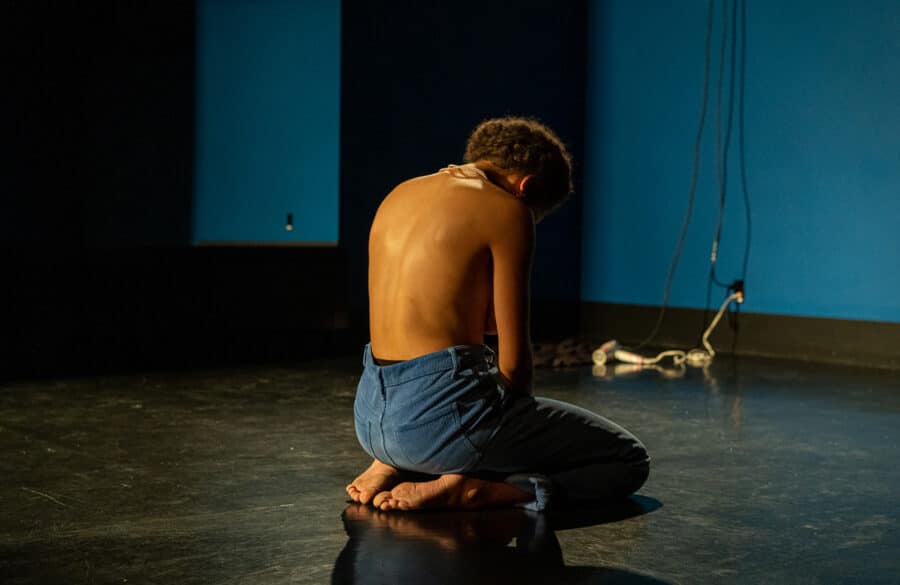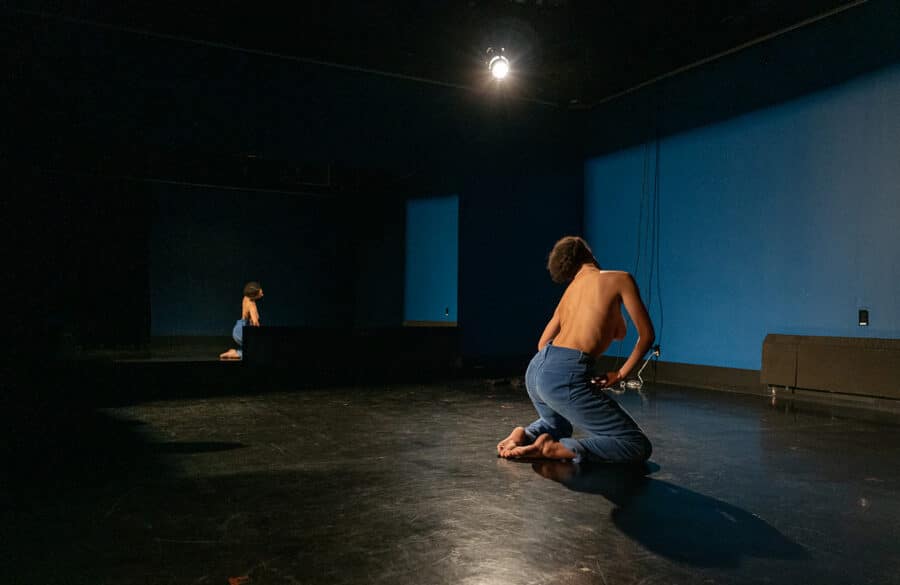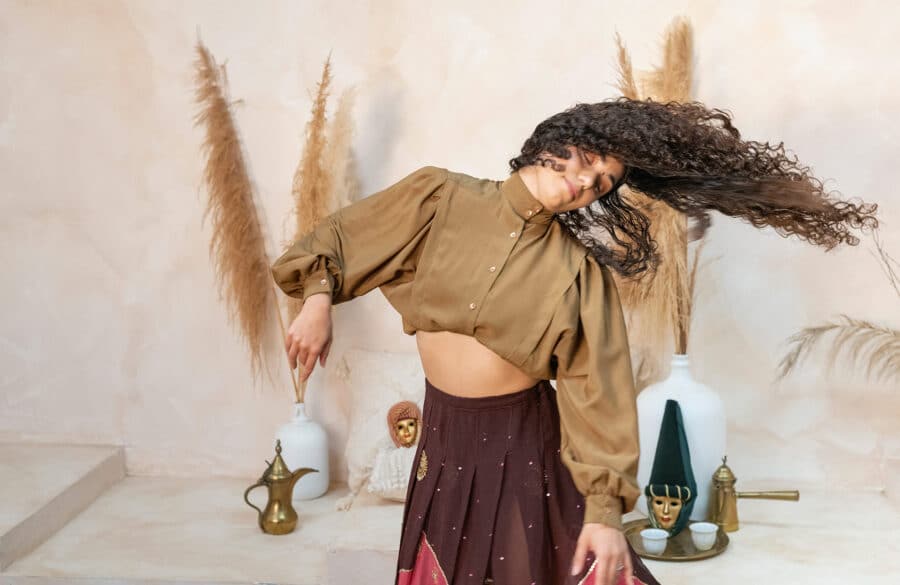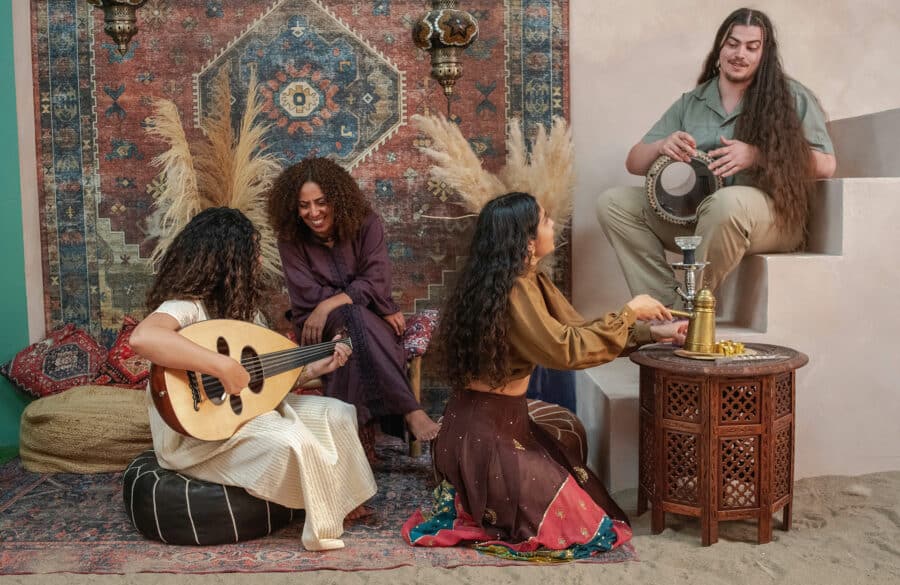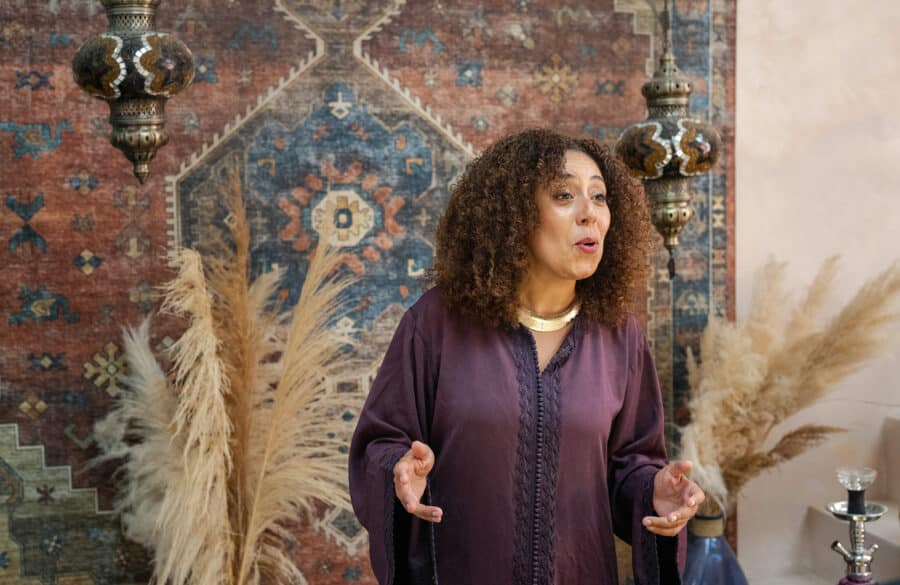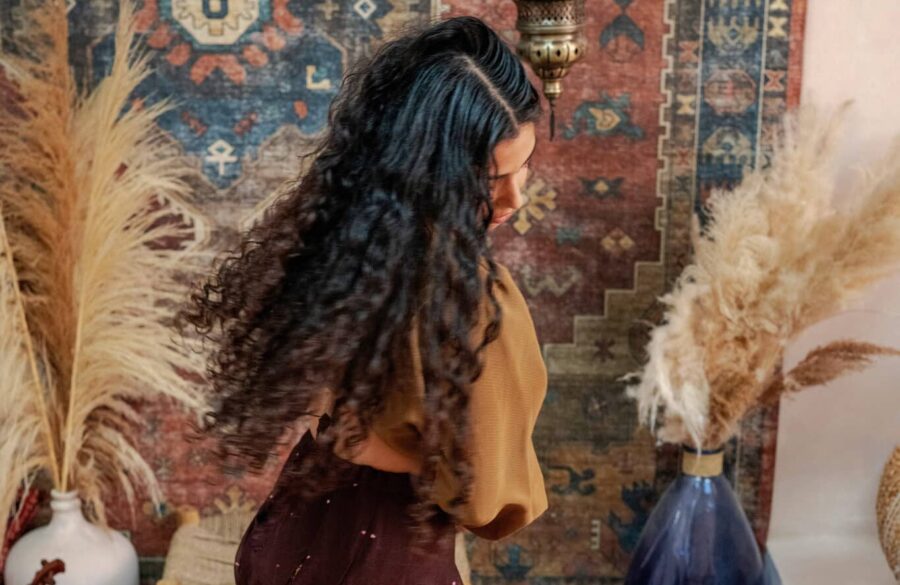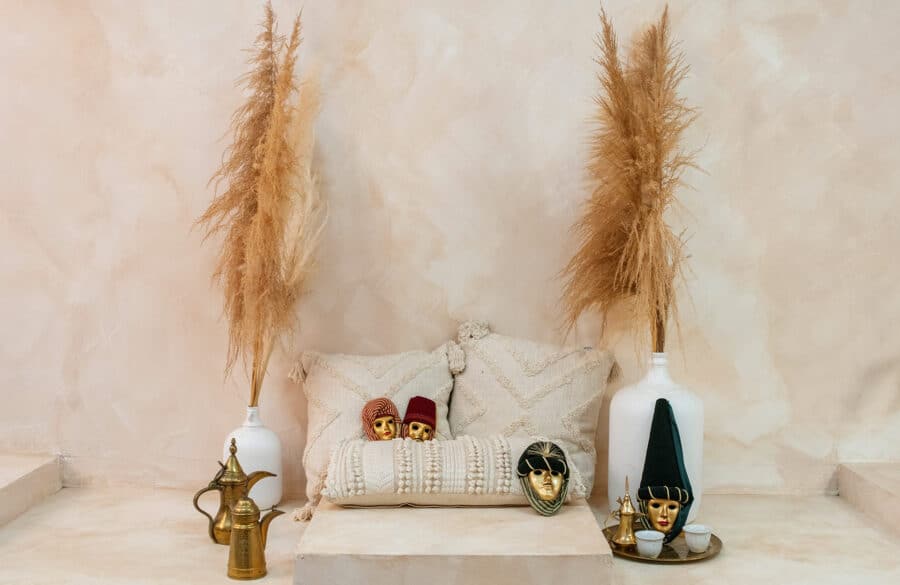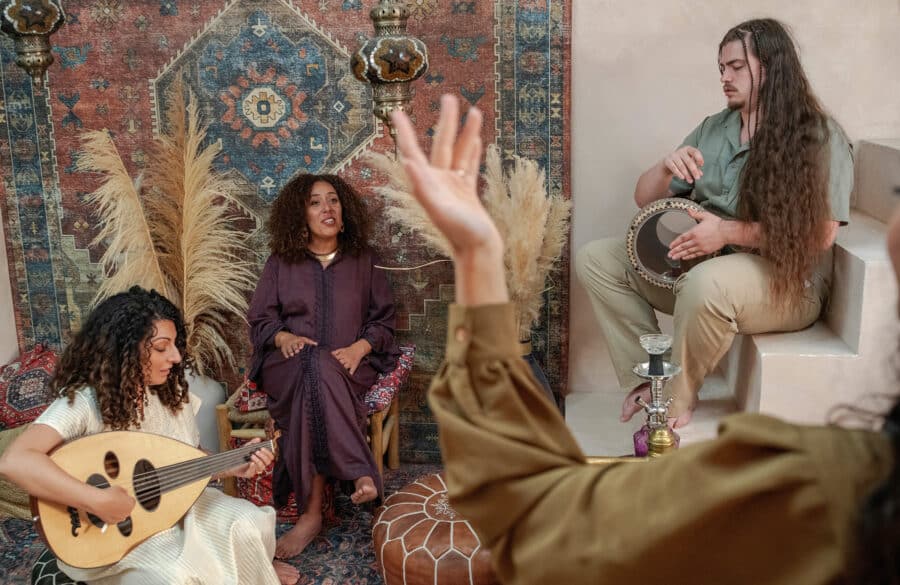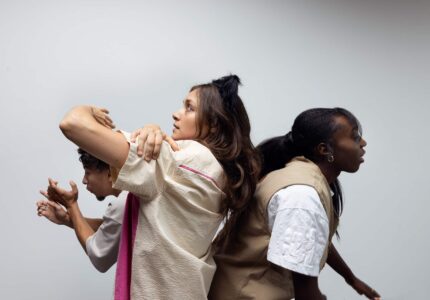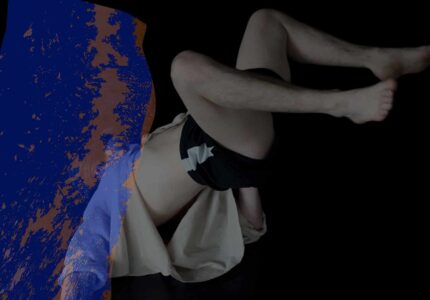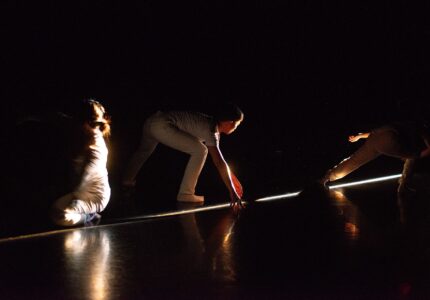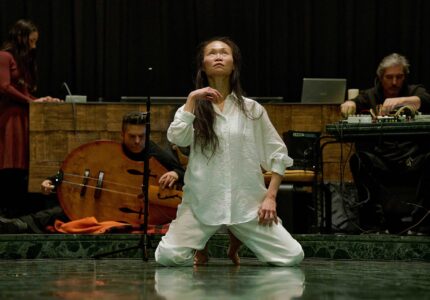Double bill
Mara Dupas + Chanel Cheiban
ÉDIFICE WILDER | Espace Orange
January 16-18, 2025 - 7pm
January 19, 2025 - 4pm
Discussion with the artists on January 17
You will need to remove your outdoor shoes to access the theatre. Please bring indoor shoes or slippers.
Mara Dupas
Olympia 2.0
Exploring fluid, undulating movement, the solo Olympia 2.0 is inspired by Manet’s famous painting of the same name, and more specifically by the character portrayed by Laure, a black model whose surname remains unknown. The piece focuses on two parts of the body: the back and the hair. Between light and shadow, the artist oscillates between postures and characters in order to reappropriate her body and its sensuality through gesture and imagination. Performed mainly facing away from the audience and with partial nudity, the piece challenges the audience’s expectations of what is revealed and what the performer chooses to conceal.
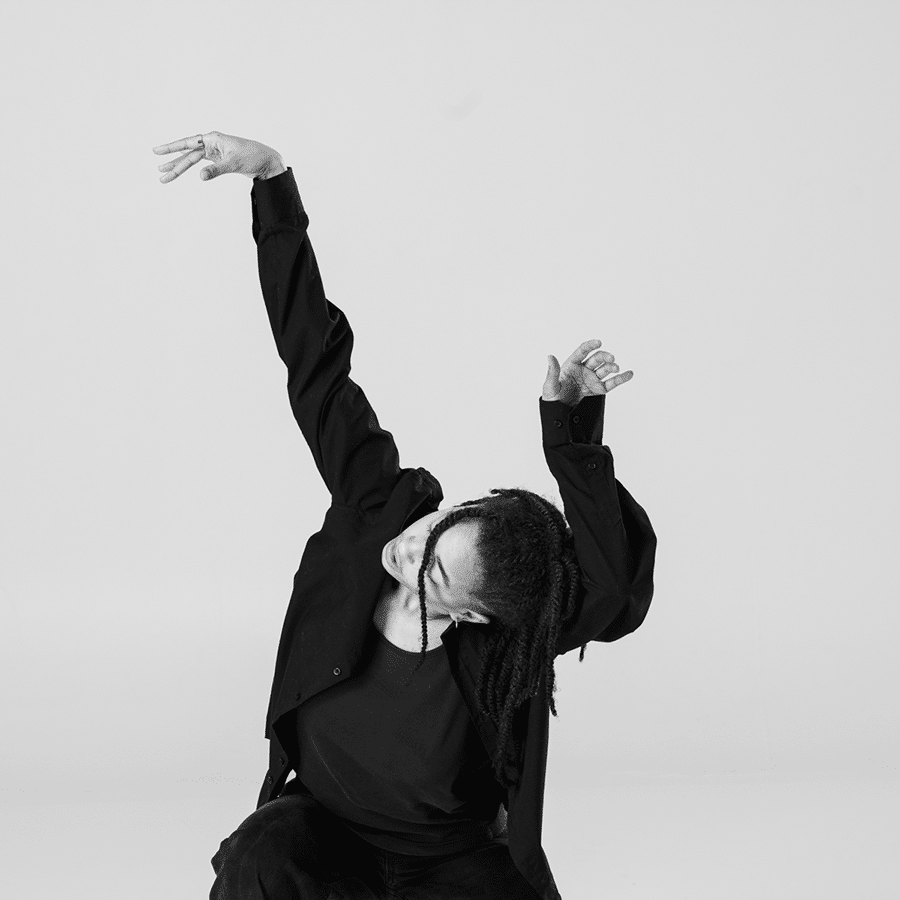
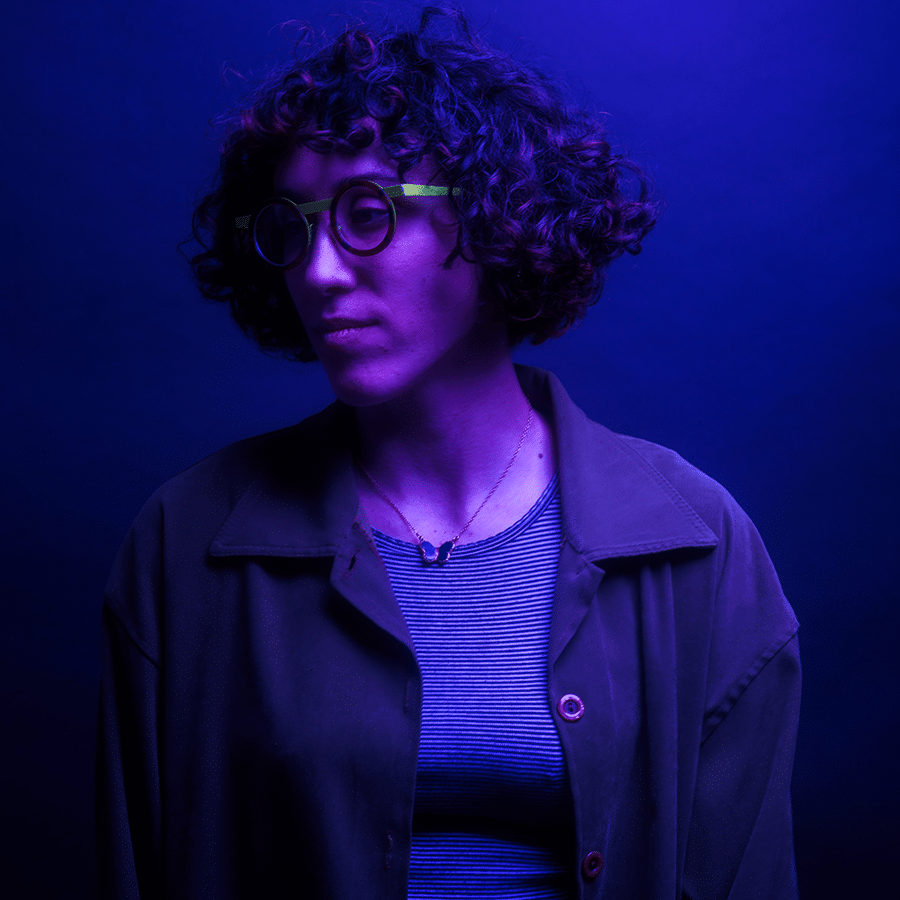
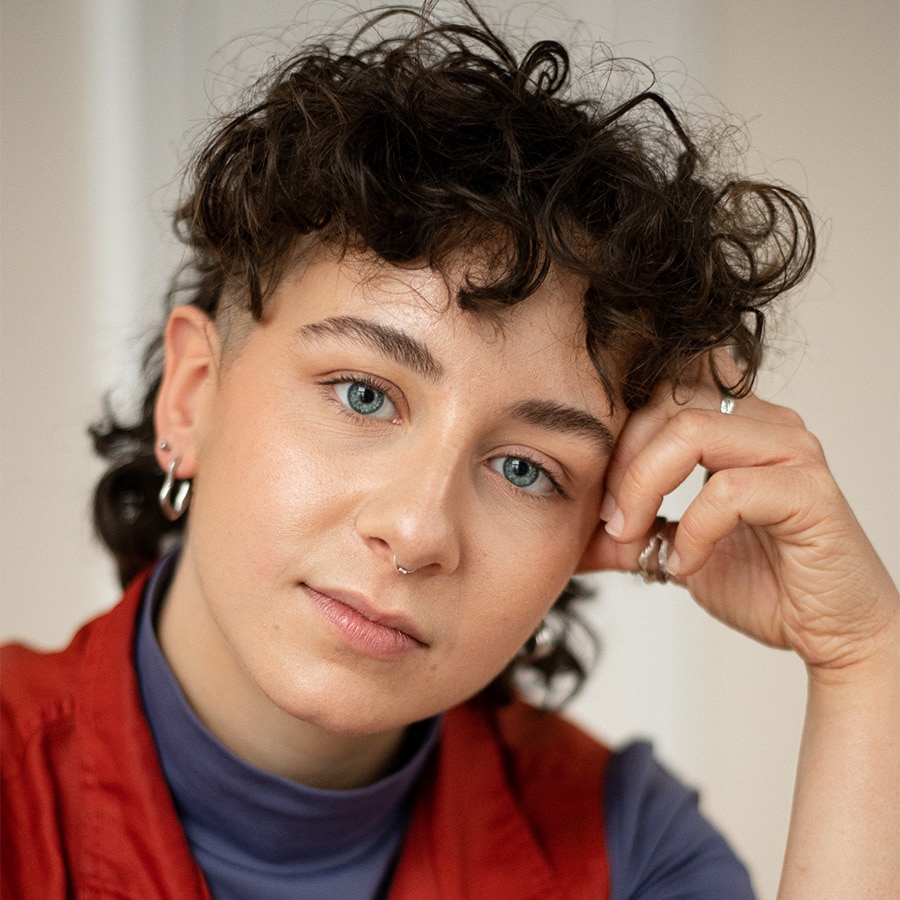
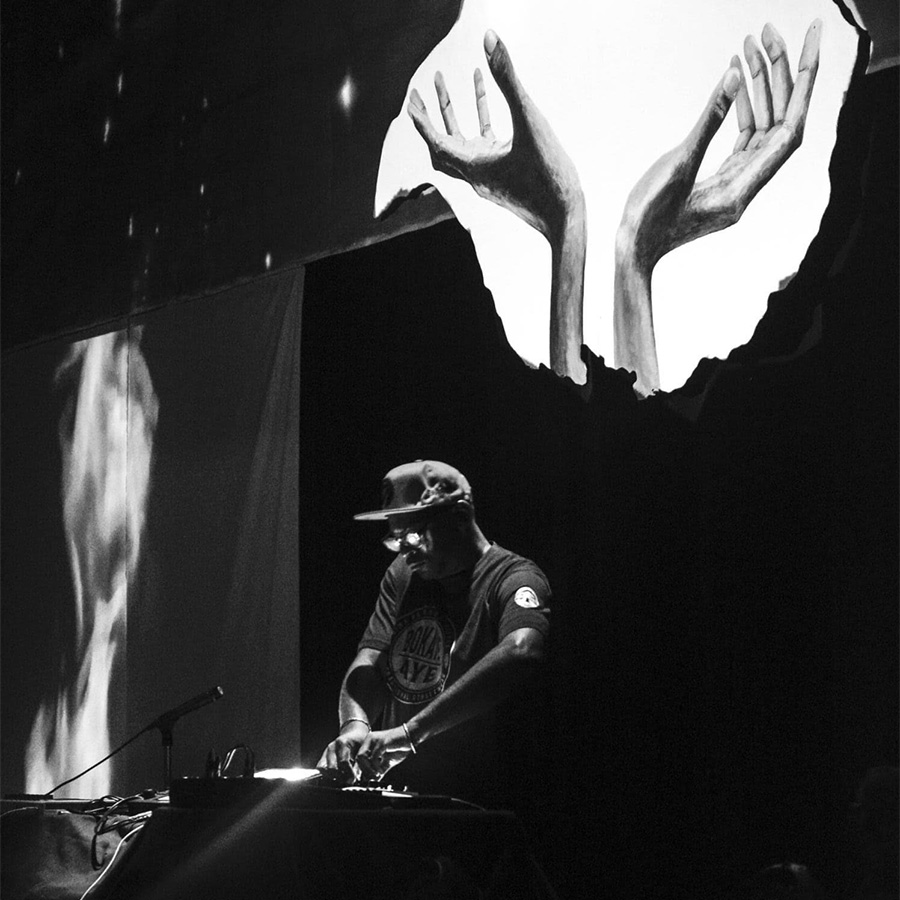
Financial and professional support Centre Culturel Afro-Canadien de Montréal
Residencies Théâtre Aux Écuries, Académie du Ballet Métropolitain de Montréal, LA SERRE – arts vivants
This project was supported by the Conseil des arts de Montréal and the Caisse Desjardins de la Culture as part of our “Donnez un coup de pouce, déplacez une montagne!” crowdfunding project on the La Ruche platform, a Tangente partner.
Born in France to a multicultural family, Mara Dupas grew up in Québec. She pursued her academic training while perfecting her technique in classical ballet and contemporary dance at Académie du Ballet Métropolitain and then at École de danse contemporaine de Montréal, from which she graduated in 2022. Mara collaborates as a performer with several artists while developing her own choreographic practice. She is interested in the connections that can be made between aspects of her Caribbean heritage, dance, and literature. The stories and lived experiences of Afro-descendant people are one of her main sources of inspiration. Her work has been showcased in Montréal at the Vue sur la relève festival, the OFFTA, and the Phénomena festival.
Tiffanie Boffa is a lighting designer, scenographer, and performer. She works to create sensorial and visual atmospheres, informed by her background as a contemporary dancer. As a lighting designer, she has collaborated with multiple artist in theatre, dance and the performing arts, including Gabrielle Lessard, Guillermina Kerwin, Jon Lachlan Stewart, Hanna Sybille Müller, Simon Renaud, La Tresse, Véronique Giasson, Marie Béland,100Lux, the company We All Fall Down, and Sébastien Provencher.
Camille Gendron, a contemporary dance artist based in Tiohtià:ke/Mooniyang/Montréal, navigates between performance and rehearsal direction. A sensitive and playful spirit, Camille never leaves home without their notebook. They see relational phenomena (human, ecological, historical) as an endless source of questioning and wonder. Believing in the importance of positioning gestures and words, they delve into their own physical sensations as a fertile gateway to redefine relationships with ourselves, with others and with the land. Holder of a BA in dance from UQAM, Camille performed in Rhodnie Désir’s latest creation, Symphonie de coeurs, and continues to work with emerging choreographers such as Rozenn Lecomte, Mara Dupas, and Melina Pires. Camille chooses the performing arts out of a desire for frank, assertive human connections, perceiving them as a source of intangible links that transcend our individualism.
Engone Endong is a visionary producer and composer blending rich Gabonese tradition with cutting-edge electronic sound design in Montréal. His main focus is to captivate audiences with his immersive soundscapes and unique textures, pushing creative boundaries. Engone Endong collaborated on innovative tracks with artists such as Pindi, Elom 20ce & Blitz the Ambassador, Tali Taliwa, Slam Action, Orchestra Maestro, conductor Liberté Anne Lymberiou, as well as Juno-nominated artists Waahli and Eccodek. His latest album, Okeng (UNLOG), gained international exposure on AFROPUNK and OkayAfrica, and was performed during Piknic Électronik, POP Montréal, Mellotron (France), the Renaissance des Étoiles festival (Gabon), which he co-founded, and at Société des arts technologiques. He co-composed for Rhodnie Desir’s Symphonie de coeurs and performed with Orchestre Métropolitain, the National Arts Centre Orchestra (Ottawa), and Orchestra della Svizzera Italiana (Switzerland). He recently created an original soundtrack for Malanda Loumouamou’s art exposition Invitation au voyage éphémère, shown in France.
The creation of this solo is part of a series of reflections on my relationship with my body as an Afro-descendant person. It abstractly explores notions of exoticism and fantasy, often associated with representations of racialized people. The intimate setting of Olympia 2.0 is a place of (re)discovery, an attempt at acceptance, and self-expression.
metamorphosis – intimacy – periphery – chiaroscuro – groovy beauty – PARADOX
Chanel Cheiban
El kamar bi zaher
El kamar bi zaher means “The Blooming Moon,” a metaphor for the artist’s inner and sacred universe, from seed to bloom. Choreographer and performer Chanel Cheiban invites the audience into her family living room to witness the birth of a dance that is unique to her, defining movement that navigates from oriental traditions to the world in which she lives today. Accompanied by three musicians (percussions, oud and vocals) playing melodies that have captured Arab people’s hearts, she becomes one with her ancestors and all those around her, letting dance consume and entrance her. An antidote to our feeling of powerlessness in the face of the state of the world, art appears as a manifesto for life.
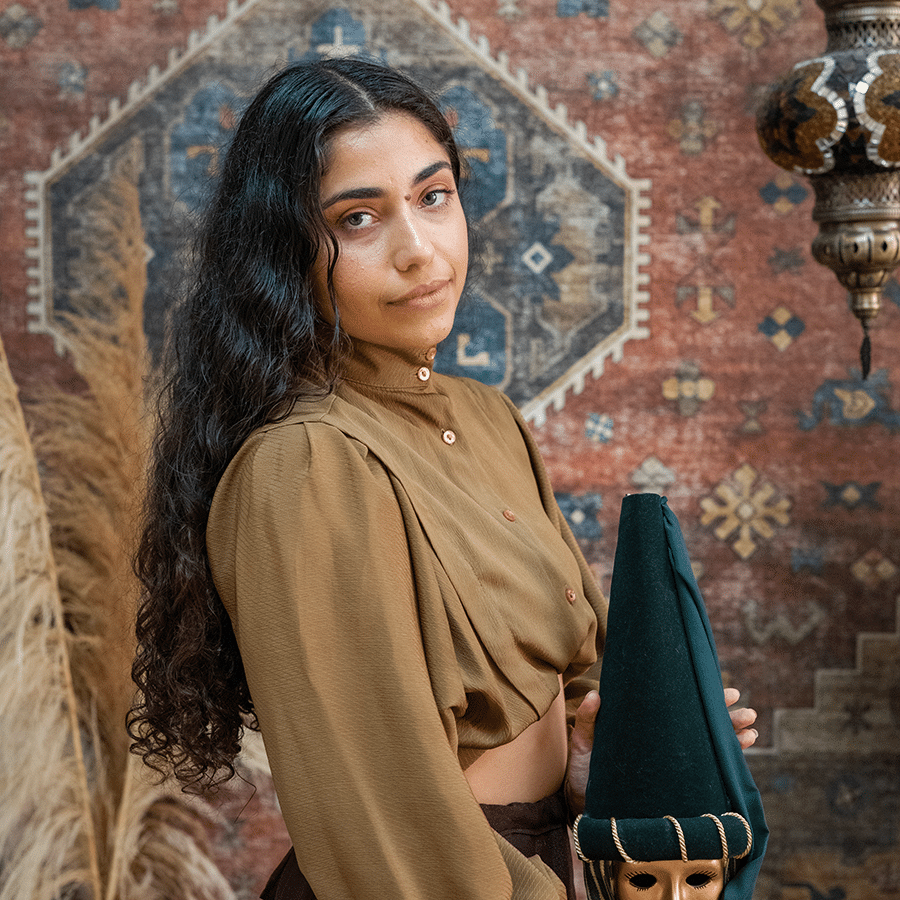
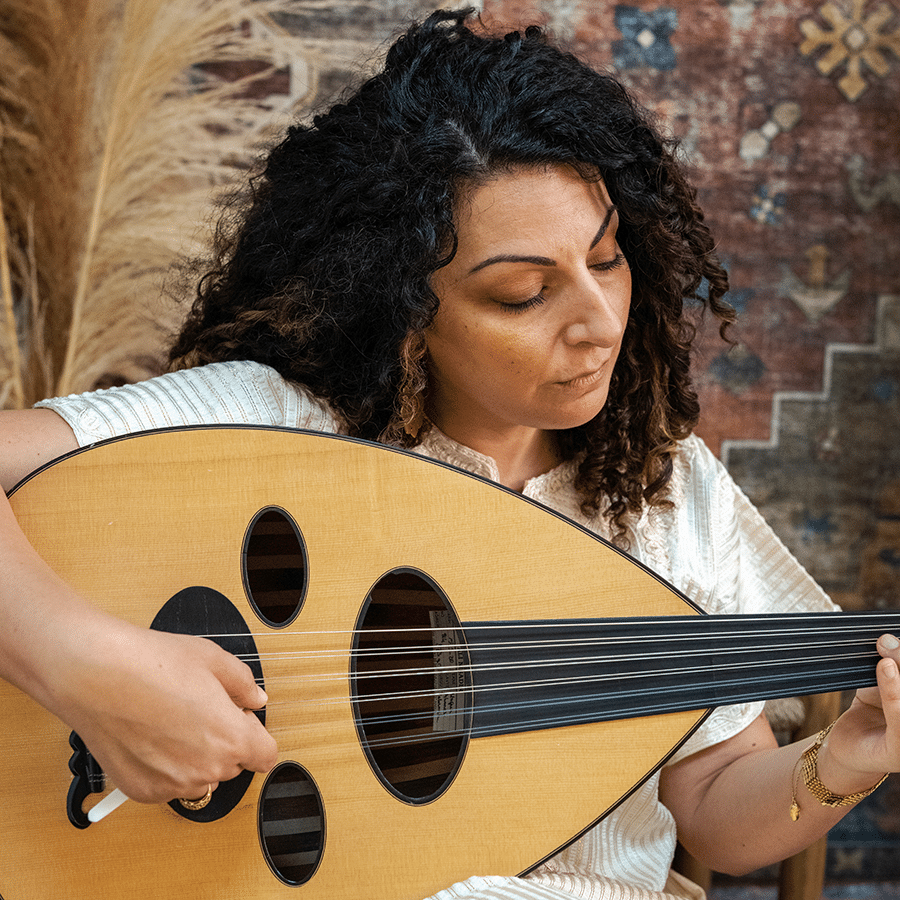
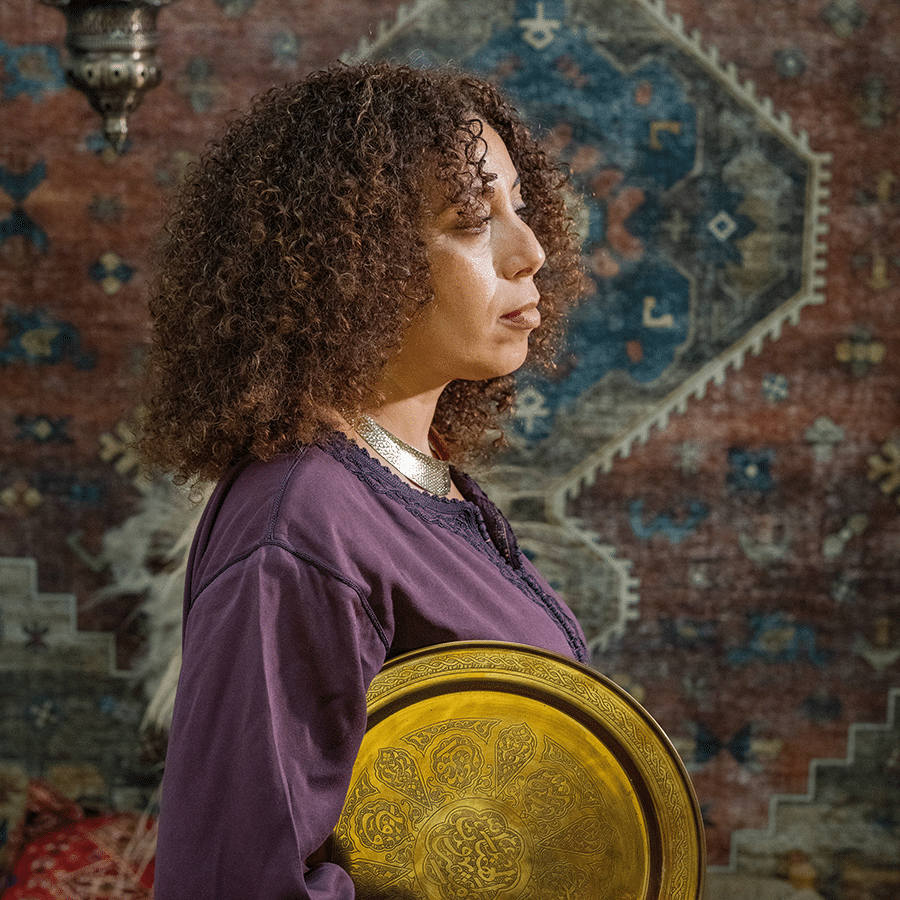
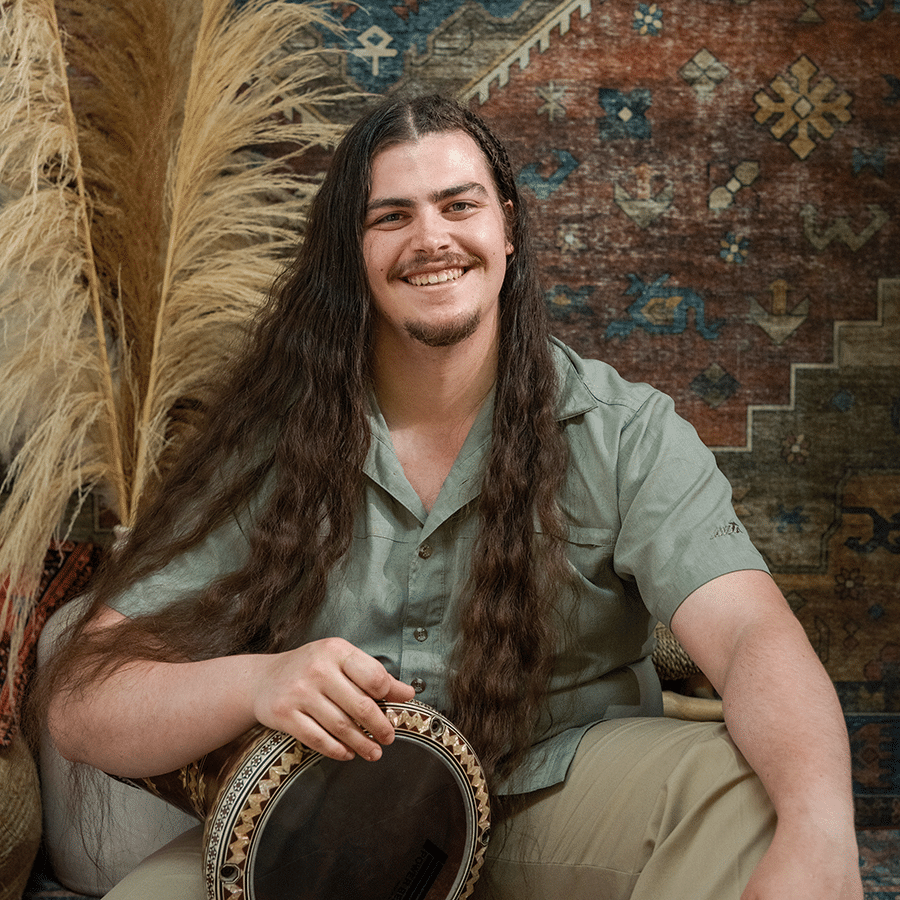
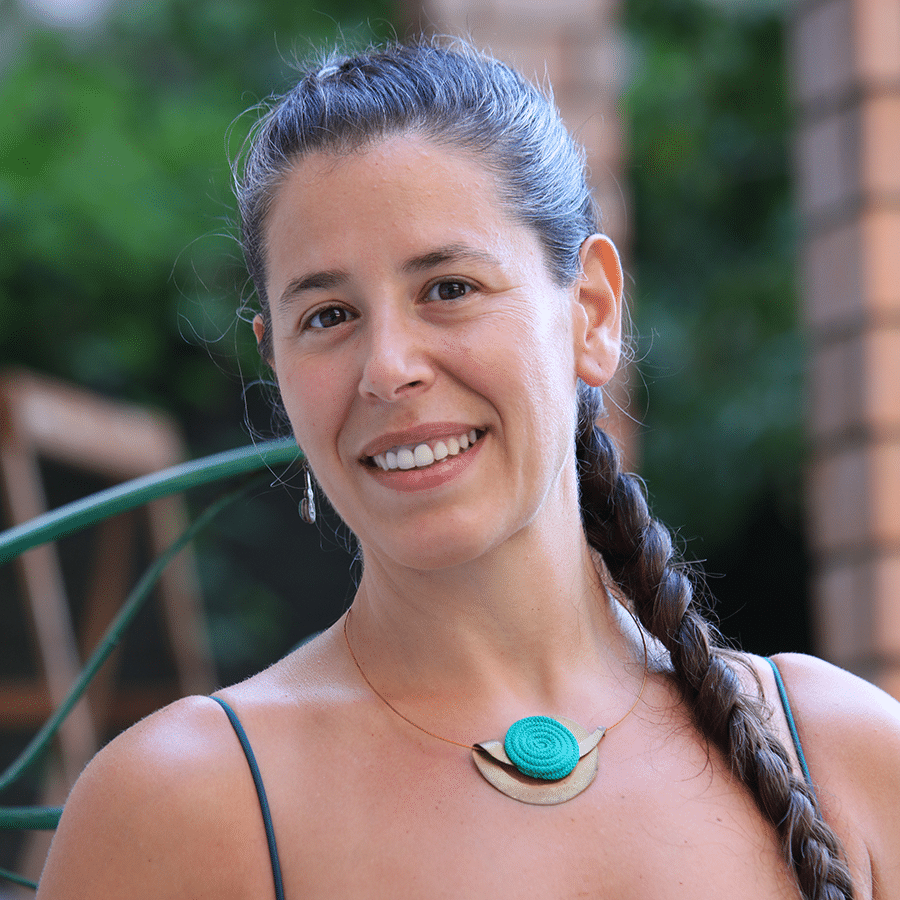
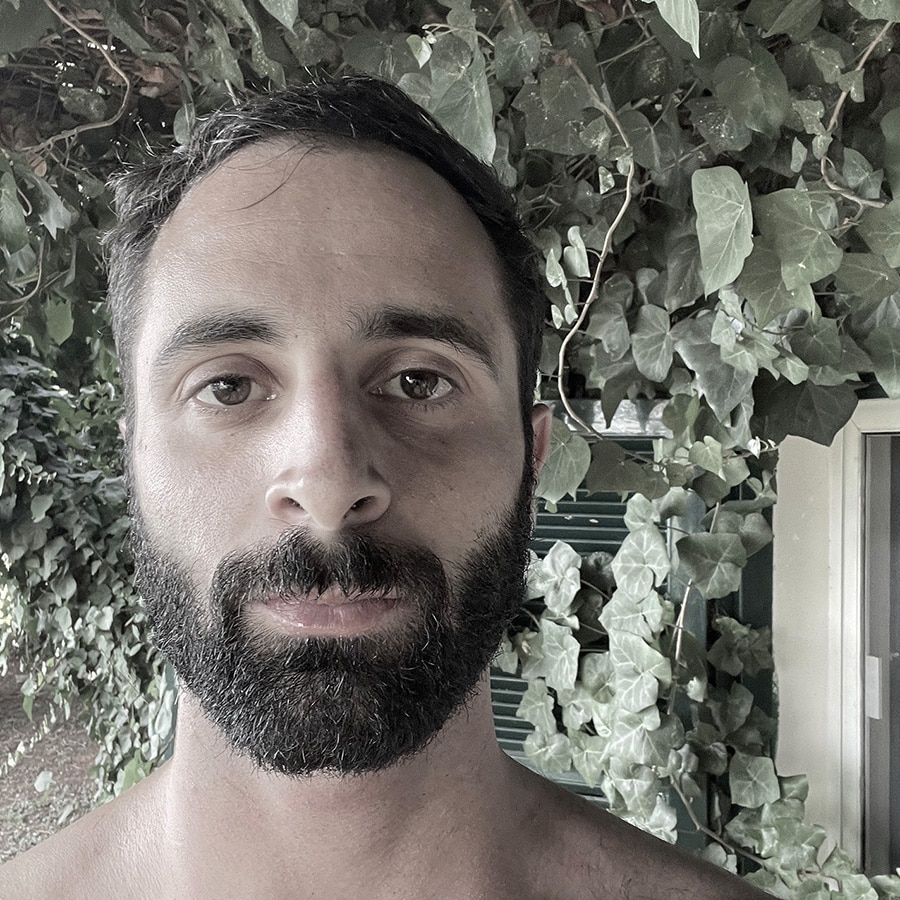
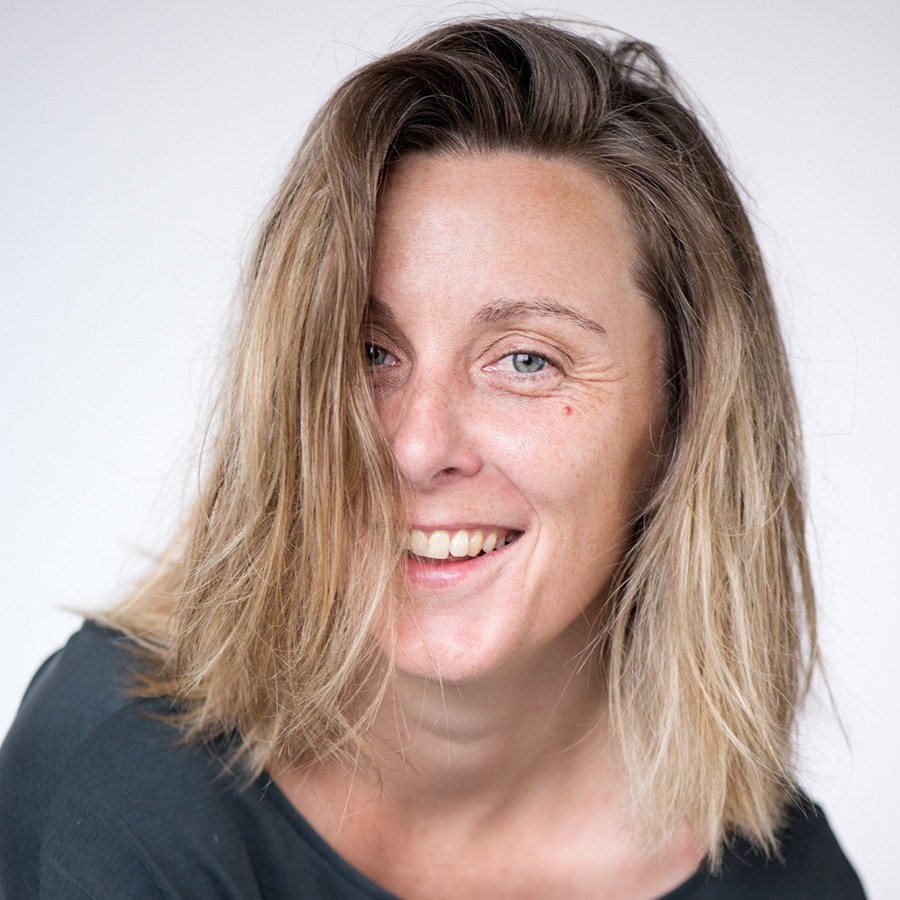

Financial support Conseil des arts et des lettres du Québec (Vivacité)
Residencies Circuit-Est centre chorégraphique, Nyata Nyata, Patro Villeray, Danses Laurentides, Espace Ouvert, Espace Écotone, Maison de la culture Villebon
This project was supported by the Conseil des arts de Montréal and the Caisse Desjardins de la Culture as part of our “Donnez un coup de pouce, déplacez une montagne!” crowdfunding project on the La Ruche platform, a Tangente partner.
Originally from Lebanon, Chanel Cheiban began her career as a performer and choreographer in a variety of artistic projects in Tio’tia:ke (Montréal). She obtained a diploma in contemporary dance at Collège Montmorency, a CID recognized by UNESCO in BIGBANG training, and graduated from École de danse contemporaine de Montréal. Since 2019, Chanel has been a performer for Veils of Bollywood, founded by Rameez Karim. She dances in several of his pieces, including Dabav, Jardins des possibilities, Bindi, and Solaris. Since 2022, she has shared different excerpts from her multidisciplinary project El kamar bi zaher, which she performs in and choreographs. She presents PLAYGROUND at Tangente in 2022, a co-creation with Maude Laurin-Beaulieu. She initiated Wholeness Movement in 2020, a project that promotes exchange between members of the Montréal community and a return to nature. Chanel has multiple experiences that inspire her to convey a story with her body and to share this common sense that is found in living art.
Oisín Hannigan is an award-winning multi-instrumentalist and an experienced bodhrán teacher. Originally from the UK, he is currently based in Montréal. His main instruments are bodhrán, frame drums, darbouka, and drum kit. He primarily specializes in traditional Irish music, but has branched out to play a large variety of different genres and fusions, such as jazz, electronica, Canadian folk, traditional Arabic, Balkan and Turkish music, and many others.
Nadine Altounji, a Montréal-based musician of Syrian descent, masters both the guitar and the oud, drawing from her Syrian and Lebanese roots. Inspired by her great-grandfather, she refined her skills with renowned oud players. Performing solo since 2012, she has explored various musical traditions with her project The Stories That Tie Us to Trees – Volume 1. Her latest EP, Enracinées dans l’histoire – Volume 2, blends Afro, Peruvian, and Arabic rhythms. Her songs have been recognized by renowned labels such as Putumayo World Music, featuring tracks like “No lo olviden” and “Dans la folie de nos temps”. She has participated in local and international events, including the Afropolitan Nomade Festival in Douala and the Calgary Folk Festival.
Najla Jaffel is an Arab singer from the city of Tunis in Tunisia, where she grew up listening to the great classical singers such as Oum Kalthoum, Fairouz Abd Al Halim, etc. She attended the national music conservatory in Tunis for two years before deciding to move to Québec in 2003. Her musical experience continued thanks to meeting a community of Arab artists with whom she has performed in several shows in and around Montréal.
Tiffanie Boffa is a lighting designer, scenographer, and performer. She works to create sensorial and visual atmospheres, informed by her background as a contemporary dancer. As a lighting designer, she has collaborated with multiple artist in theatre, dance and the performing arts, including Gabrielle Lessard, Guillermina Kerwin, Jon Lachlan Stewart, Hanna Sybille Müller, Simon Renaud, La Tresse, Véronique Giasson, Marie Béland,100Lux, the company We All Fall Down, and Sébastien Provencher.
Corinne Skaff is a Lebanese dance artist, movement educator and community organizer based in Montréal, pursuing a Master’s degree in Dance and Somatic Education. She currently works as co-artistic director of the Toronto-based dance company Jasad. She approaches dance as a vital practice of self-embodiment rather than as entertainment. In a constant search for dances that make sense for the personal and cultural context in which they take place, Corinne is inspired by continuously learning through play and ephemerality. She is interested in the strategies and politics of transmission, cultural bodies, and the creation of community bonds through movement practices.
Artist and teacher Stéphanie Decourteille founded the dance and contemporary creation program Big Bang in Montréal in 2018, and a year later co-founded the organization supporting movement artists Espace Ouvert. Professionally trained in ballet and contemporary dance, and stimulated by more than 25 years as a performer, choreographer and trainer locally and internationally, Stéphanie places the development of professional and pre-professional artists (dance, circus, theatre, performance, etc.) at the heart of her artistic and cultural commitments. In each of her positions as artistic director, creative advisor or movement teacher, Stéphanie Decourteille works to ensure that process is valued, that skills are perfected, and that all forms of expression are encouraged.
Charlie Prince (1991) is a Lebanese dance and performance artist. His interests are rooted in the intersection of the political and the poetic body, and the many profound resonances this may create. His transdisciplinary choreographic works have been presented in several major festivals and theatres, including ImPulsTanz Festival, Dansmakers Amsterdam, Rencontres chorégraphiques internationales de Seine-Saint-Denis, Vancouver International Dance Festival, Oktoberdans, Fabricca Europa, and Beirut International Platform of Dance. Charlie holds a Bachelor of Music from McGill University in Montréal with a minor in Religious Studies, and continues to engage as a composer in his artistic practice. In 2023 he was artist in residence at the Villa Empain in Brussels, after having received the Prize for Dance and Performance awarded by the Boghossian Foundation in Belgium. He was also an apap (advancing performing arts project) 2020 artist supported by the European Union Commission for Culture from 2017 to 2020.
Being part of the first-generation Lebanese diaspora, I have a privilege: that of being a woman born in a place such as Québec, while having the education and heritage of parents from a country where the socio-political situation has never been obvious. I aspire to embody, in complete freedom, a path of reconciliation to stories to transform the barriers of the ego. In this creation, dance and music come from the heart and become one to represent a gesture with a societal impact.
In this project, interculturality lives in the exchange with the artists who are involved in it. Often with multiple identities, there are many Quebecois/Montrealers with origins from elsewhere. The sharing and knowledge of an individual’s heritage follows and inevitably influences him in today’s world. Addressing questions about religions, myths, war stories, mysteries and family expectations cover this creative process where we try to revive an intimate and sensitive story.

